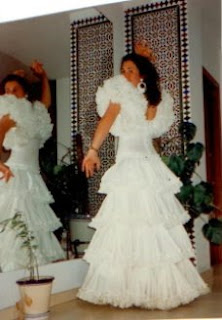What do we mean by "culture" in the foreign language classroom?

Guest blogger: Darcy Lear
Language teachers have tried to move away from such static views of culture (what Ann Abbott calls "culture in a box") and the advent of methodologies such as community service-learning have helped.
But surely in the day and age of globalization and the acknowledgement that universities have to prepare students for careers that do not yet exist, we must find ways to talk about culture that embrace its dynamic nature.
One thing I tell my students is "one word is never enough." If you are using a single word to identify a person or group of people, you have vastly over-simplified. None of us are just brown or black or white; teachers or students; parents or employees.
I encourage students to refuse to treat anyone as if they are defined by a single role and admonish them to acknowledge individuals that they encounter. This could be as simple as making eye contact with the employees in the university cafeteria, saying "hello" to the campus groundskeepers, or saying "thank you" to the woman working in the crosswalk (instead of ignoring her presence to jay walk while you talk on your cell phone--the very kind of behavior that created her job because of pedestrian deaths on university campuses).
Only by doing this at the individual level will our language students be able to open their minds to the kinds of diversity we are talking about across nations when we use the word "cultures."
Only by doing this at the individual level will our language students be able to open their minds to the kinds of diversity we are talking about across nations when we use the word "cultures."



UNC has crossing guards? That's interesting. We have had too many unfortunate deaths--and probably many more near-deaths--on our campus, too.
ReplyDeleteImplicit in your post is that "culture" is always more than just a synonym for nationality. That's an important, yet sometimes difficult to understand, concept for our students. It's also the reason why not just foreign-language instructors should be teaching cultural analysis.
I love your use of the term "dynamic" to describe the nature of cultures as well as cultural analysis. I'd love to see you really explain that concept in future posts; I don't think it's an obvious statement for most people.
I enjoy the philosophy of always using more than one word to define a person, or culture, or country, for that matter. I find myself being prejudicial sometimes and I will try to think about describing people in more than one way, which might lead to describing them in a more positive light (you can't think of too many negative words, right?)
ReplyDelete